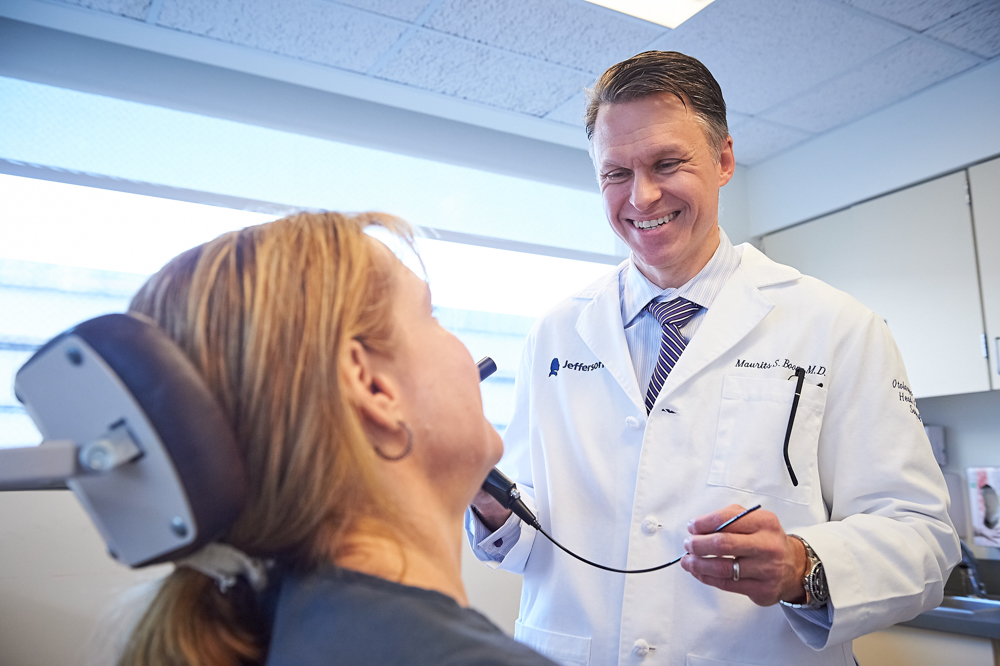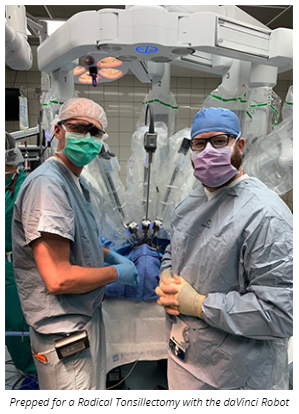Essential Signs You Should Visit a Sinus Specialist Today
Essential Signs You Should Visit a Sinus Specialist Today
Blog Article
Checking out the Field of Otolaryngology: What to Anticipate When You Get In Touch With an ENT
Otolaryngology, frequently referred to as ENT, encompasses the diagnosis and therapy of ear, throat, and nose problems. For those experiencing associated problems, speaking with an ENT expert can supply clarity and alleviation. Understanding what to anticipate during such examinations is essential for efficient communication and care. This overview will outline key elements of the ENT experience, consisting of typical factors for brows through and the procedures associated with medical diagnosis and treatment.

Understanding Otolaryngology: A Review
Otolaryngology, usually described as ENT (Ear, Nose, and Throat) medication, is a specific branch of medication that focuses on the medical diagnosis and therapy of conditions affecting these essential areas of the human body. This field incorporates a vast array of problems, including those associated to hearing, balance, breathing feature, and speech. Otolaryngologists are educated to handle both clinical and surgical treatments, using advanced techniques and innovations. Their experience expands beyond standard conditions, dealing with problems such as allergies, sinus infections, and hearing loss. Furthermore, they play a vital duty in the monitoring of head and neck cancers cells, offering detailed treatment customized to specific person requirements. On the whole, otolaryngology stays crucial for maintaining wellness and high quality of life in afflicted people.
Usual Factors to See an ENT Expert
Several people look for the competence of an ENT professional for a range of factors, mirroring the varied nature of conditions that influence the ear, nose, and throat. Typical problems consist of chronic sinus problems, which typically results in consistent nasal blockage and facial discomfort. Allergic reactions and their associated signs and symptoms, such as sneezing and itching, also motivate brows through to these specialists (ENT surgery). Hearing loss, whether steady or unexpected, is one more considerable reason for assessment. On top of that, people may seek assessment for throat conditions, including persistent hoarseness or swallowing difficulties. Sleep apnea, defined by disturbed breathing during sleep, is often addressed by ENT professionals too. Each of these conditions highlights the significance of specialized treatment in managing intricate ENT-related wellness concerns
Preparing for Your ENT Consultation
When planning for an ENT consultation, it is important to gather pertinent details and think about any type of specific issues. Individuals ought to assemble a detailed case history, consisting of previous ear, nose, or throat concerns, surgical procedures, and existing medicines. Documenting signs and symptoms-- such as intensity, frequency, and period-- can give useful insights for the ENT specialist. Additionally, people need to prepare a list of inquiries they want to ask, making sure that all worries are dealt with during the go to. Bringing along any type of pertinent medical documents or test outcomes can further help the ENT in comprehending the person's condition. Ultimately, patients should validate their visit details, consisting of location, time, and date, to lessen any kind of final confusion. Appropriate prep work can enhance the performance of the examination and bring about better results.
What to Anticipate Throughout the Assessment
As the examination starts, the person can expect to involve in a complete discussion with the ENT specialist concerning their signs and symptoms and case history. The expert will ask about the period, regularity, and seriousness of signs such as hearing loss, nasal blockage, or aching throat. In addition, the patient's previous medical conditions, drugs, and any relevant family background will be evaluated, aiding the expert in developing a complete understanding of the individual's health. The ENT may likewise ask concerning lifestyle aspects, such as direct exposure to irritants or irritants. This open discussion establishes a foundation for the examination, guaranteeing that the person's concerns are dealt with and setting the stage for any needed assessments or referrals for treatment.
Analysis Examinations and Treatments in Otolaryngology
A series of diagnostic tests and treatments are important in otolaryngology to precisely assess and identify conditions impacting the nose, throat, and ear. Typical tests include audiometry, which measures hearing function, and tympanometry, evaluating middle ear stress. Nasal endoscopy allows visualization of the nasal passages and sinuses, while laryngoscopy checks out the throat and singing cables. Imaging strategies, such as CT scans and MRIs, give detailed sights of head and neck structures. Allergy testing may additionally be carried out to determine triggers for sinus or respiratory system problems. These diagnostic tools allow ENT experts to create a complete understanding of patients' problems, guaranteeing tailored and efficient management strategies. Correct diagnosis is necessary for effective treatment end results in otolaryngology.
Treatment Options Used by ENT Specialists
ENT specialists provide a variety of therapy alternatives customized to attend to particular conditions affecting the throat, ear, and nose. These therapies range from traditional techniques, such as medication and lifestyle alterations, to even more invasive treatments. For instance, allergies might be taken care of with antihistamines or immunotherapy, while persistent sinus problems might call for nasal corticosteroids or sinus surgical procedure. For hearing loss, ENT experts often suggest listening devices or surgical treatments like cochlear implants. In instances of throat disorders, alternatives can include speech therapy or operations to eliminate blockages. In addition, they might supply support for managing rest apnea, including using CPAP tools or surgical treatments. Overall, the goal is to boost clients' lifestyle via personalized care and efficient treatment strategies.
When to Look For Follow-Up Care With an ENT
Acknowledging when to seek follow-up care with an ENT expert is essential for managing continuous signs and symptoms or difficulties connected to nose, ear, and throat conditions. People should think about scheduling a follow-up consultation if signs linger in spite of preliminary therapy, such as chronic ear discomfort, nasal congestion, or throat pain. Modifications in hearing, equilibrium problems, or uncommon nasal discharge may additionally call for more assessment. In addition, if an individual experiences side impacts from suggested drugs or has undergone a procedure, follow-up care is important to check recovery and address any problems. Timely examinations can assure reliable administration of problems, prevent possible problems, and give tranquility of mind pertaining to one's wellness. Seeking follow-up treatment advertises proactive wellness management in otolaryngology.
Regularly Asked Inquiries

What Certifications Should I Seek in an ENT Professional?
When seeking an ENT professional, one should search for board accreditation, appropriate experience, and website strong client reviews. Furthermore, reliable interaction abilities and a thoughtful strategy can greatly boost the overall therapy experience.
Just how Do I Select the Right ENT for My Needs?
Picking the ideal ENT specialist involves assessing their qualifications, experience, and client reviews (ENT). It is important to contemplate their interaction design and approach to treatment, guaranteeing they line up with the individual's certain health and wellness needs and preferences
Exist Any Type Of Threats Linked With ENT Procedures?
The threats linked with ENT procedures may consist of infection, blood loss, anesthetic issues, and potential damages to bordering structures. Clients should discuss these risks with their physician to comprehend individual problems and guarantee educated decisions.
Exactly How Can I Handle Anxiety Before My ENT Visit?
To take care of anxiousness prior to a consultation, individuals can practice deep breathing workouts, envision positive end results, prepare inquiries beforehand, and look for assistance from close friends or family members, cultivating a feeling of confidence and peace.
What Should I Do if I Experience Adverse Effects From Therapy?
The person should immediately report them to their healthcare company if side effects from treatment take place. Adjustments to therapy or additional treatments may be needed to ensure safety and security and effectiveness in managing their problem - Sinus. As the appointment begins, the client can expect to involve in a thorough discussion with the ENT expert concerning their signs and medical background. These diagnostic tools enable ENT professionals to create an extensive understanding of people' conditions, making certain tailored and effective monitoring plans. ENT professionals provide a variety of treatment alternatives tailored to deal with certain problems affecting the ear, nose, and throat. When seeking an ENT specialist, one should look for board qualification, pertinent experience, and solid individual reviews. Picking the ideal ENT expert involves assessing their qualifications, experience, and patient evaluations
Report this page